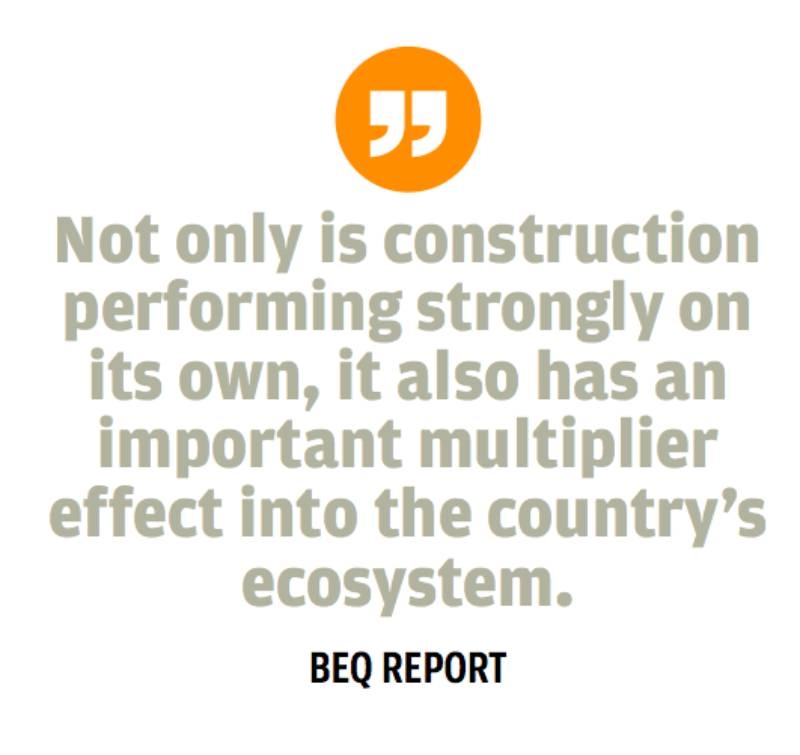Infrastructure, construction underpin continuity in Bahrain’s non-oil growth
Bahrain’s highly-diversified economy continues to show steady growth, where the third quarter of 2018 saw this driven yet again by the non-oil sector, the Economic Development Board (EDB) said in a release issued yesterday. The review of the Kingdom’s performance was recently published in the Bahrain Economic Quarterly (BEQ), which identified that GCC fiscal rebalancing should boost confidence and contribute to economic continuity more broadly in the region.
Such confidence is reflected in an acceleration of growth across the GCC, although the average growth rates will be markedly lower than pre-2008 years due to the unprecedented infrastructure boom in the region, the report highlighted, the EDB said. The BEQ, published by the Bahrain Economic Development Board (EDB), noted that infrastructure remains a key driver of growth, but now goes hand-in-hand with a stronger emphasis on productivity-promoting measures being seen across the Middle East. As the Bahrain economy continues to diversify away from hydrocarbons, the BEQ found that Bahrain’s annual real GDP growth of 1.6 percent in the third quarter was underpinned by expansion in the construction and manufacturing sectors, as well as increased infrastructure spending.
Project activity in the GCC-funded projects alone has seen a major build-up, with the cumulative total active projects rising by 16.3pc year-on-year (YoY). Apart from the continued infrastructure build-up, Bahrain is seeing increased investment in technological modernization and innovation. Most notably, such factors are driving change within the country’s rapidly growing FinTech cluster, but they are also key behind the ongoing expansion in manufacturing.
In a reflection of the Kingdom’s demographics and diversification, construction has long been an important source of growth and the sector expanded by 5.4pc year-on-year in the third quarter. Overall it increased 6.2pc in the first three quarters of 2018. “Not only is construction performing strongly on its own, but it also has an important multiplier effect into the country’s ecosystem, especially in other parts of the non-oil economy such as real estate, finance, manufacturing, and trade. Growth in construction feeds through into strong momentum in these allied sectors.”
Related Posts

